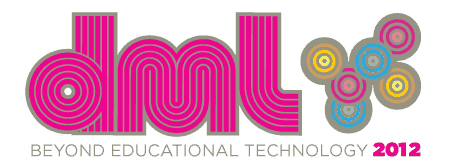MRT: Reprogramming Urban Ecologies through Youth-Made Apps
Inside an Oakland studio, a team of youth and adults debates the placement of a button on an app the group is preparing to launch. They’re part of Mobile Action Lab, a project of the Peabody Award-winning production company, Youth Radio. Lab participants partner with pro developers to make apps serving community needs. This app, Forage City, invites users to share backyard fruit and other sources of excess produce (e.g., farmers market leftovers) with neighbors and people in need. With adult partners, the young people—youth of color from public schools—conceptualized and prototyped the app. Now they’re testing, tweaking, and planning ways to use social media and street-team tactics to spread the app among city dwellers across the nation.
On the other side of that nation, in DC, a second team of youth is creating an app promoting food security. Youth APPLab includes kids as young as eight, who’ve spent the past year developing 30 apps, including tools that: use math to warm up the brain, map afterschool programs, and help kindergarteners learn the alphabet. Participants are experts on App Inventor, a Google tool housed at MIT’s Media Lab that allows novices to develop Android apps. APPLab’s food-related app, Go Green DC: Community Garden Edition, shares information about DC’s 36+ community gardens, with tips on starting new ones. Food Justice organizations will partner with APPLab students to improve the app over the coming year.
Drawing insights from these case studies, the panel identifies new modes of learning and disruption that emerge when young people intervene at the intersection of two systems that have marginalized low-income youth of color: software development and urban ecology. These are not professionals developing learning applications for youth, but youth learning by developing applications. The young people don’t produce one-offs. They deploy products through cycles of iteration and community engagement, so that users, too, learn and re-organize towards equitable resource distribution.
The panel is composed of leaders and researchers from the two app labs. Elisabeth Soep and Leshell Hatley are the labs’ PIs, backed by the DML2010 competition. UCBerkeley grad student and HASTAC scholar Asiya Wadud studies citizens’ use of mobile technology to drive urban planning in low-income communities. Wadud founded Forage Oakland, the residential fruit-bartering project that inspired Youth Radio’s work on Forage City, on which Wadud has collaborated for one year. Asha Richardson is the lead youth member and co-founder of the Mobile Action Lab. As collaborators, all four of us will share responsibility for intentionally creating cross-panelist conversation and audience interaction.
The panel reveals the production processes behind these two apps and the labs out of which they emerged. Data include development artifacts (e.g., user flows, coding blocks, prototypes), interviews and field notes. Panelists identify key features of infrastructures for learning through mobile technology creation that yield potent outcomes for youth and communities. Those features include: public accountability, negotiated analytics, collegiality with experts, and clear pathways for youth to material advancement.



